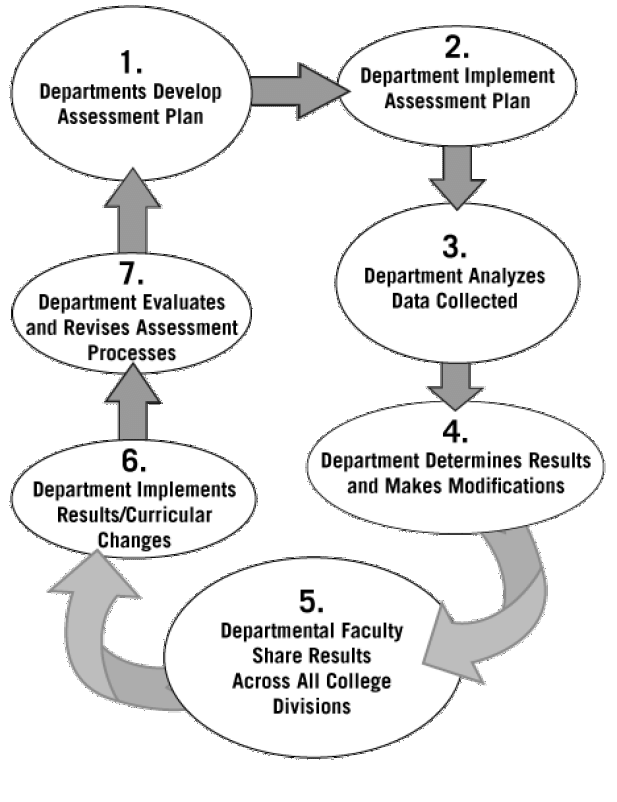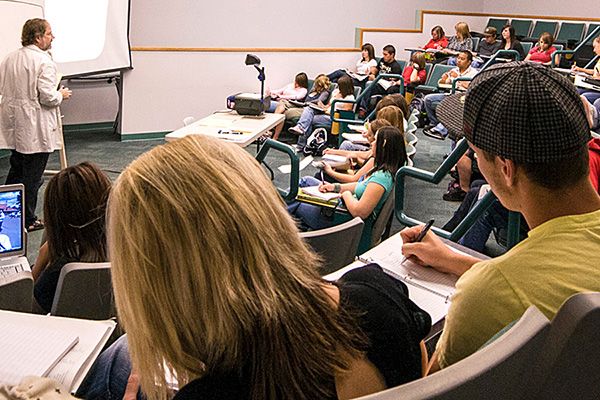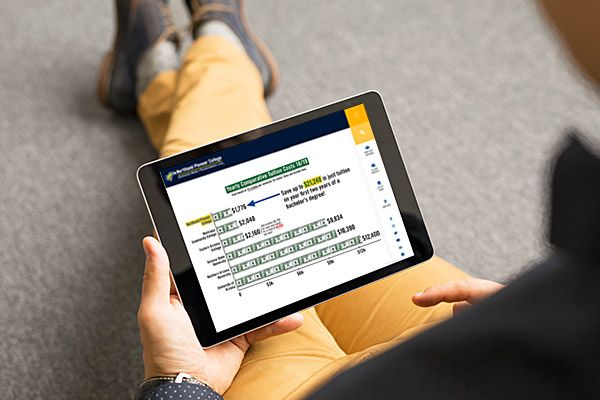Northland Pioneer College seeks to ensure all students meet institutional learning outcomes in the areas of Effective Communication and Critical Thinking. To measure student success towards these outcomes, the college implements an annual process of student assessment known as Assessment of Student Knowledge (ASK). The ASK assessment process is intended “…to improve student learning and institutional effectiveness in fostering student success” (Higher Learning Commission, 2016). The diagram at right outlines the current assessment process in place.
In addition to the alignment to institutional learning outcomes, additional areas in which departments may evaluate student outcomes include:
- NPC 3: Quantitative Reasoning
- NPC 4: Scientific Inquiry
- NPC 5: Information Literacy
- NPC 6: Diversity
Departments begin by examining their assessment procedures, consider tools, and review data collected from previous cycles. After making any needed adjustments to their assessment plan, the department implements the process. Data is collected throughout the assessment period, and then departments and programs analyze data. Following this analysis, the department or program modifies curriculum as needed and submits a report detailing their process to the Assessment of Student Knowledge Committee (ASK). The college also engages faculty in gathering to participate in Dialogue Day, when departmental/program results are shared with the college as a means of promoting a college-wide discussion on best practices and insights gained through the current year’s process.
After analysis and consideration of data and its meaning, departments and programs may respond by adjusting curriculum, instruction, or program design.





